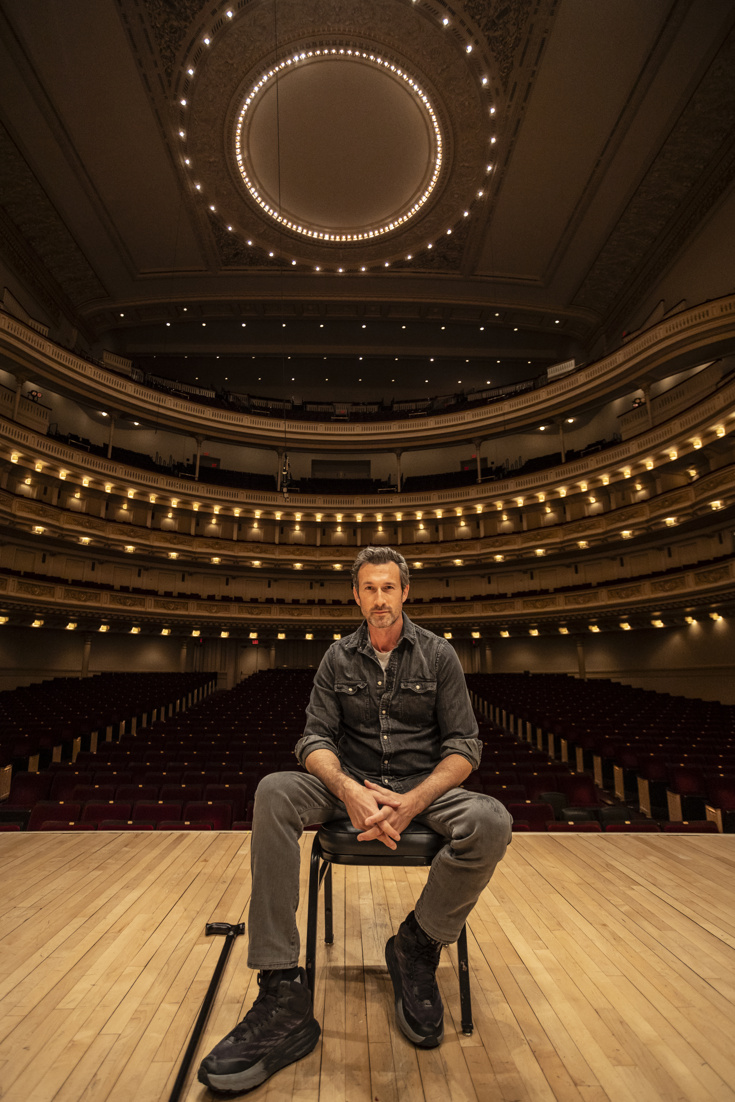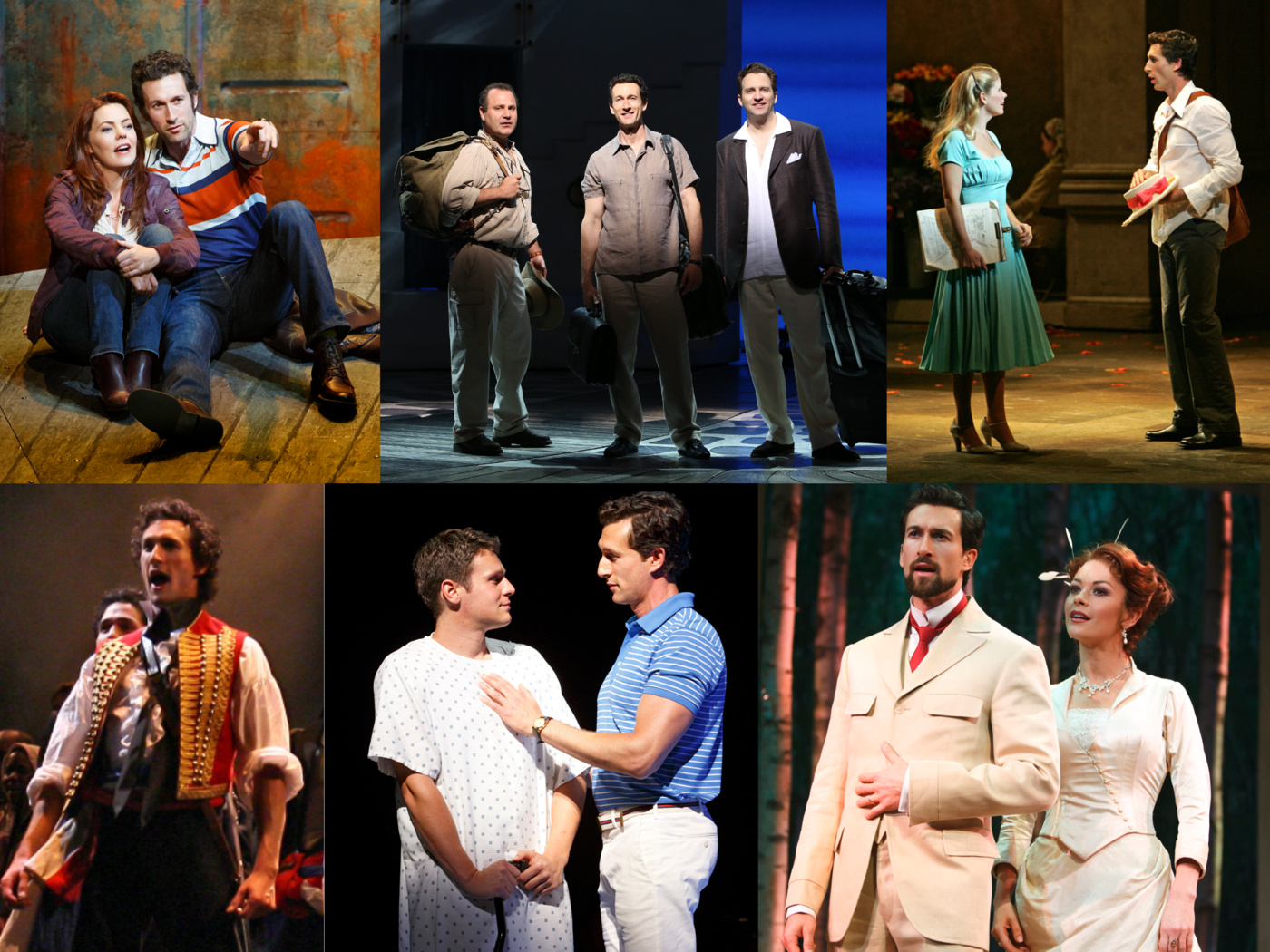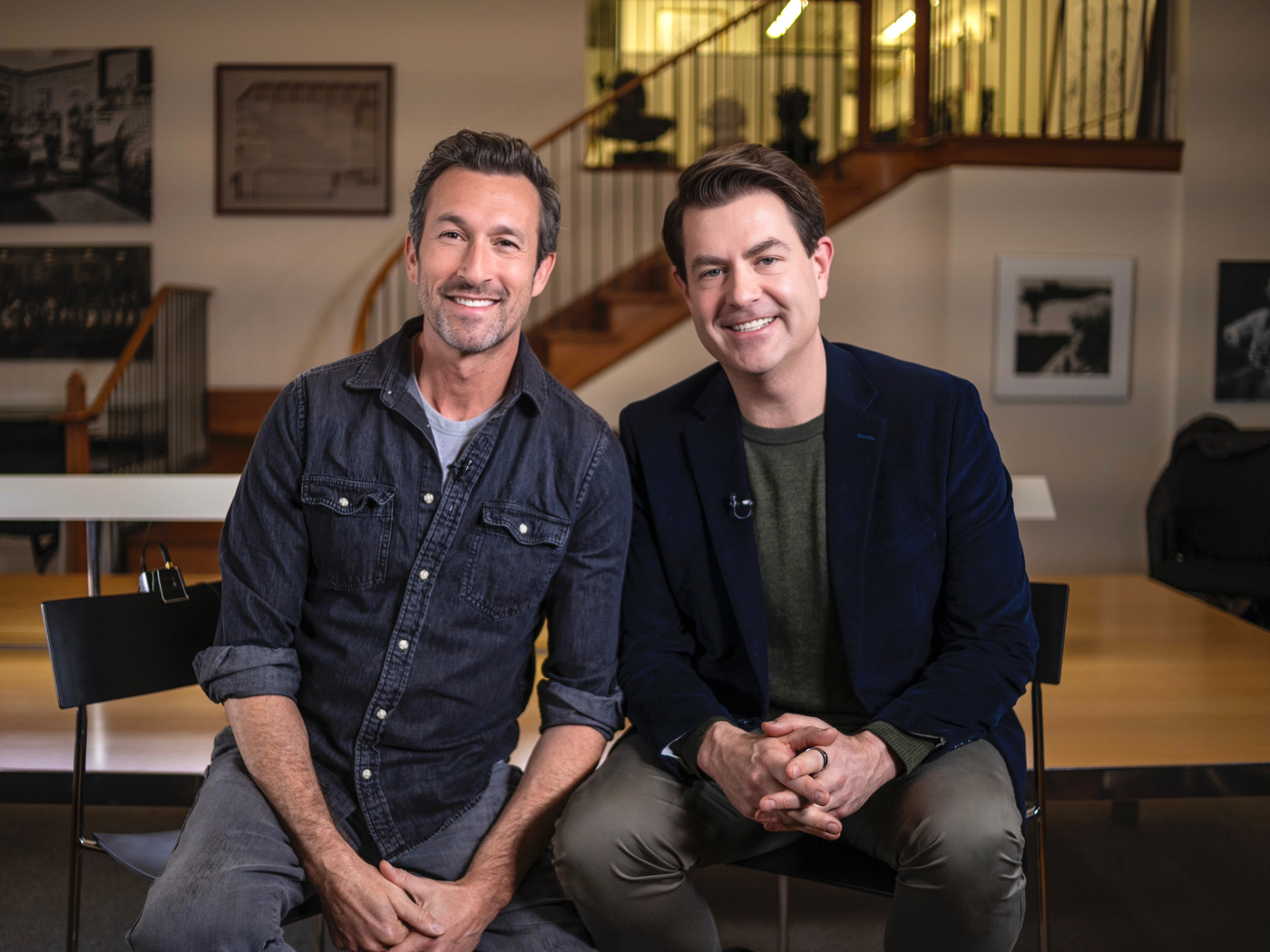Aaron Lazar’s 'Impossible Dream': Healing from A.L.S.

(Photo by Luis Ferrá for Broadway.com)
On a recent day in January, the singer and actor Aaron Lazar was exploring one of the rooms tucked away in the storied New York venue Carnegie Hall. “I hated history in high school,” he told Broadway.com’s Editor-in-Chief Paul Wontorek on The Broadway Show. “I opted out of it in college. You could opt out of one subject. Maybe the dumbest thing I've ever done. Actors need history. Now I kind of love history.” Lazar was in between rehearsals for a concert tribute to Stephen Flaherty and benefit for the University of Cincinnati – College-Conservatory of Music (CCM), where Lazar studied musical theater. He spent some time inspecting the venue’s archival photo collection: Maria Callas, Celia Cruz, the Rolling Stones, Bob Dylan… “Now I'm like, wait, should I be nervous that I'm performing on stage at Carnegie Hall where all these people performed?”
Earlier this year, Lazar—whose extensive Broadway credits include roles in The Phantom of the Opera, The Light in the Piazza and Les Misérables—revealed to the Broadway community that he has been diagnosed with the neurodegenerative disease Ameotrophic Lateral Sclerosis (A.L.S.), also known as Lou Gehrig’s disease. “I did the podcast, people heard, and the next thing I know it was out there. And so here we are. And I feel good. I feel ready to talk about it. And the Broadway community has just opened their arms and their hearts to me so much. I'm so grateful.”

Lazar’s symptoms began in the summer of 2021, with muscle twitches in his quads. Next, his stomach and back were affected. “It’s not an easy thing to diagnose and it's scary for people out there dealing with it. I went through a really, really tough time of anxiety and insomnia and depression for the months leading up to the diagnosis.” The diagnosis, when it finally came—nearly six months after the symptoms first appeared—changed everything. “I kind of went, ‘Well, for whatever life I got left, I don't want to be afraid.’”
"I don’t focus on the disease. We create our lives with our perception of our lives." –Aaron Lazar
A.L.S. has no known cure. (Its later symptoms include severe muscle weakness, fatigue and breathing difficulty, with death generally resulting from atrophy or paralysis of the respiratory muscles). But Lazar is determined not to surrender to the disease. In the past two years, he has been on a “healing journey,” involving meditation, relaxation, music, books, spirituality and generally cultivating a positive state of mind. “I just really take every day as an opportunity to just get better at playing the game of life. How do I want to feel in my life? How do I want to feel sitting here with you right now? How do I want to feel doing the dishes? I want to feel joyful. I want to feel relaxed. I want to feel at ease.
“My energy when I get out of bed is not, ‘I have A.L.S. and my legs are weak.’ I don’t focus on the disease. We create our lives with our perception of our lives. And maybe I need to really try and give this nervous system some love.”

For someone who has lived and breathed musical theater for most of his life, one of the unforeseen side effects of living with A.L.S. is the way that familiar show tunes take on a whole new meaning. “It's like one day you wake up and you're like, oh, I understand what ‘Being Alive,’ the Sondheim song, means,” said Lazar. “I might've sang it in high school. I had no clue.”
Another one is “The Impossible Dream,” from Man of La Mancha. Lazar performed the song 23 years ago at CCM. At the time, the song had personal meaning for him. “My ‘impossible dream’ at the time was to be an actor. But I had no idea what ‘impossible’ really meant. When I got diagnosed, I thought, well, my new impossible dream is to beat this.”

(Photo: Luis Ferrá for Broadway.com)
Lazar continued, “And then I realized there's nothing to beat. It's not a fight. I don't want to meet this with any kind of resistance. I want to meet it with ease and joy and healing. So my impossible dream is possible. It’s just to heal—not just the physical, but my whole self.”
Having embraced the song as an anthem of sorts, Lazar hopes to inspire others with the song and his story. “I'm trying to use it as healing for me, and hopefully healing for other people. If we can all help each other heal, wouldn't that be a beautiful thing?”
